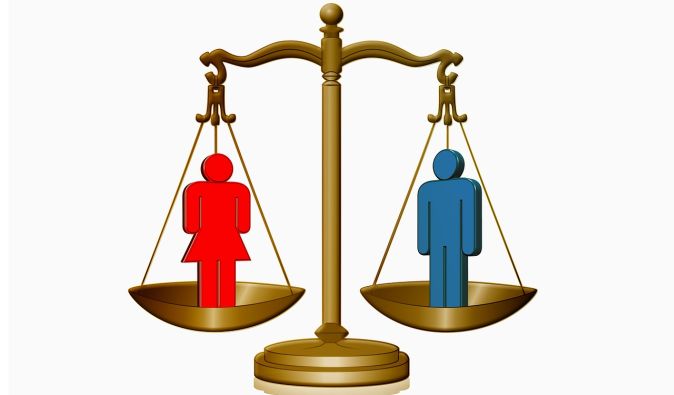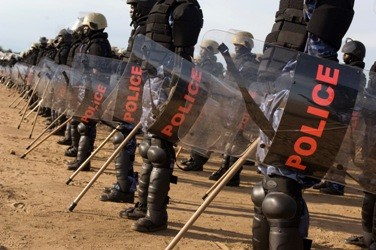Sudan is amongst the least visited countries in East Africa and is often described as unsafe. The truth couldn’t be farther than that; Sudan has some of the best stats amongst African countries, with one of the lowest crime rates in the continent and very few petty crimes happening against foreigners. Here are 5 myths often heard about Sudan and why they shouldn’t hold you back from visiting the country:
It is a country of Islamic extremists

In many countries around the world, we hear more and more bad things about Islam and its purported relationship to terrorism. Those who have traveled a bit often learn to see things for what they are and, in the case of most countries, understand that the culture of Islamic countries is often rich and quite tolerant.
Now, in the case of Sudan, what scares people the most is to hear that the country is under Sharia law, the most conservative set of rules given by the prophet Mohammed and his successors. Some of these rules are often seen as harsh and outdated by the outside observer. Some punishments of the Sharia include physical punishment. However, once you visit Sudan, you can see that it is quite easy to forget that the country is under those laws. The laws of each and every country might be different – and the severity of various punishments – but usually, it isn’t too hard to figure out how to be law-abiding. You won’t see trials in the streets and if you avoid making fun of religion or bringing in alcohol, you’ll probably never come across anything related to Sharia.
If you come to Sudan, you can be sure that the locals will be willing to explain to you more about their religion and how they feel about it. Sudan also has other religious minorities and their rights are respected in general. Come and learn more about it so that you can make up your own mind; I promise you won’t be put on a pyre and branded an infidel!
Sudanese are hostile towards women

This myth is often linked to the previous one and our misunderstanding of Islam. From our western conception of things, we might be shocked when we see women wearing the burka. Some would say these women are forced to hide. However, if you show open-mindedness and recognize that in a different country, points of view might vary, you might see a whole different picture.
Numerous accounts of female travelers in Sudan are available on the internet, with most of them being very positive. While it is true that men and women tend to stay separated in Sudanese society, women are usually shown a great deal of respect. The legendary Sudanese hospitality welcomes both genders!
Sudanese women are extremely curious when it comes to foreign women and you can expect to make many friends as a solo woman traveler!
Most Sudanese also understand that women from abroad come from a different culture and they are not expected to follow the same rules local women choose to follow. You might find that foreign women are often considered as “honorary men”, in that they are allowed to mingle with both men and women. A foreign man talking to Sudanese women might not be as well-received, though; be sure to read the situation and stay open-minded and respectful.
If you are female and hesitating to travel to Sudan, you can stop doing so right now! Have a look on the internet and you’ll see many favorable reports!
It is a rogue country under embargo
Most of the sanctions Sudan was under were actually lifted last year. Things have relaxed a lot recently, and the country is looking like it’s on the way up. Some say that now is precisely the time to engage with the country, either economically or through tourism, so that it is revitalized and avoids falling back in the ethnic wars that have held it back before.
Lots of conflicts have worsened due to sanctions– or, at least, sanctions have proven ineffective. Take Cuba and North Korea, for example, both have maintained their regimes despite decades of sanctions. Most visitors traveling to these sanctioned countries find that, behind the propaganda, the governments stay the same and the people are the ones to suffer.
Throughout our tours to Korea and Cuba, we have had great experiences and will always cherish the memories of our time there – none of which would have happened had we been scared off by sanctions.
Just because a government, be it yours or another, decides to apply pressure to the government of another country, this shouldn’t be enough for you to pass judgment on the behavior of the everyday people within said country. In fact, I think it is even more important to visit these countries, and the increasingly isolated people thereof, and to form your own opinion.
The country is in a state of chaos

Throughout the years as I traveled to more and more places where my mother would rather I didn’t go, it struck me that there is no unsafe country as a whole; rather, there are unsafe places and unsafe behaviors within most countries. So it is with Sudan. If you travel to Sudan, chances are that you will have a great time and not encounter any issues. However, there are some places in the country you should avoid.
The Blue Nile, Darfur, and Northern/Southern Kordofan are unsafe due to the fact that they were not allowed to take part in the referendum for South Sudan`s independence. These parts of the country, wishing they could have joined South Sudan since they feel more ethnically and culturally attached to the South Sudanese, are struggling for independence against a government that doesn’t want to let them go. Repression is hard and many opportunists use the conflict to stir trouble in their favor. However, the trouble tends to be localized to these regions, with the separatists wanting independence for their region rather than taking over the whole country. As such, you shouldn’t be afraid of conflict if you stick to the other regions, where the majority of the population is fine with being in Sudan.
Other parts you should avoid are the borders with other countries that are having their own conflicts. For example, smuggling and trafficking are known to happen quite a lot along the Libyan and Eritrean borders. Borders here can be quite porous and hard to monitor for the local forces, which makes them more dangerous than, say, Khartoum or Ombudsman.
They kill gay people on sight
There`s no way around it, sadly; homosexuality is still illegal in Sudan. However, gay tourists do not have to fear for their lives. Under Sudanese law, gay people can only be prosecuted if caught in flagrante. Simply being gay is not enough to put you in trouble. While it might be wise to keep your sexual orientation to yourself while traveling in Sudan, you’ll find Sudanese to be quite curious and welcoming. You won’t be subject to interrogation or persecution.
Sudanese law says that homosexuals are prosecuted after the third offense. With this in mind, you might want to hold off from public displays of attention or sharing a double bed with another person of the same gender. While this is a regrettable thing and we hope that the situation gets better for the people of other sexual orientations, being gay shouldn’t hold you back from visiting Sudan. The key here, again, is to observe and learn rather than attempt to proselytize or lecture. We can only hope that increased exposure to tourists will see Sudan gradually open up.
All in all, Sudan is an often misunderstood country full of great discoveries waiting to be made. After decades of conflict, the country is hoping for better days and we feel like tourism is a great way to promote mutual understanding. That is one of the reasons why we have launched our first tour to Sudan in 2019. How about rejecting stereotypes and joining us to find out for yourself?





